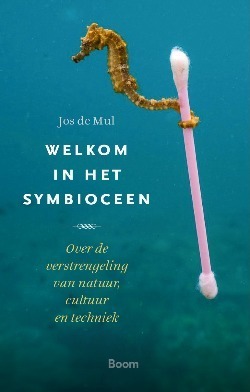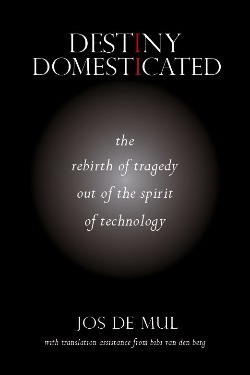Jos de Mul. Biopolitical Anthropology in the Age of Converging Technologies. Invited lecture at the workshop The Public Use of Reason – Philosophical Anthropology in the 21st Centure. Organized by the Helmuth Plessner Society on occasion of the Conferral of the Helmuth Plessner Award upon Onora O’Neill. Wiesbaden/Zoom Conference, 24 & 25 March 2021, 10-18. Lecture De Mul at 10 AM. Link: https://dshs-koeln.webex.com/dshs-koeln/j.php?MTID=mceda3b56f7d46e6c0f08426f179b0374
In my contribution, I will focus on the reciprocal constitution of Plessner’s philosophical anthropology and political philosophy. I will analyze Plessner’s critique of reductionist and determinist Neo-Darwinism and its political implications as elaborated in Die Stufen des Organischen und der Mensch (1928), Macht und Menschliche Natur (1931) and his recently published lectures on Philosophische Anthropologie, which he held in Göttingen in 1961. Against this background, I will discuss the challenges and task of philosophical anthropology in our present age, characterized by converging technologies. This term refers to the increasingly integrated biotechnologies (such as genetic modification), digital neuro-technologies (such as brain implants), artificial intelligences (such as predictive algorithms) and nanotechnologies (manipulation of matter on an atomic, molecular, and supramolecular scale, which plays an enabling a role in the other three).
The thesis I will defend is that whereas in 1919 Neo-Darwinism was primarily a theoretical challenge, which necessitated a rethinking of – to quote the title of Scheler’s most famous contribution to philosophical anthropology – »the human place in the cosmos« (Scheler, 1928), in the course of the 21st century, it became a practical one. Supported by multinationals like the ›Big Five‹ tech companies (Google, Amazon, Facebook, Apple, and Microsoft), the ›Big Six‹ seed, biotech and agrochemical corporations (Dow Chemical, DuPont Pioneer, ChemChina, Syngenta, Bayer and Monsanto), as well by authoritarian states such as the People’s Republic of China (we should not only think of the social credit system, but also of the present biopolitical state terror against the Uyghur population in the Xinjiang Province), Neo-Darwinism has become a biopolitical project, more or less intentionally aiming at a transformation of human life in the direction of trans- and posthuman lifeforms. The question is no longer what is the human’s place in the cosmos, but rather whether there still is a place for human life in the cosmos, and what we should do vis-à-vis Neo-Darwinian biopolitics. The decisive question in the present age is, in other words, how to choose our right enemy.
I will argue that today, Plessner’s philosophical and political anthropology, and especially the key concept of Unergründlichkeit, will not only help us to understand and criticize the contemporary theoretical challenge of Neo-Darwinism, but may also inspire us if we want to tackle the practical threats of Neo-Darwinism politically.
2021-03-25 (Wiesbaden/Zoom) Biopolitical Anthropology in the Age of Converging Technologies
Typography
- Smaller Small Medium Big Bigger
- Default Helvetica Segoe Georgia Times
- Reading Mode









